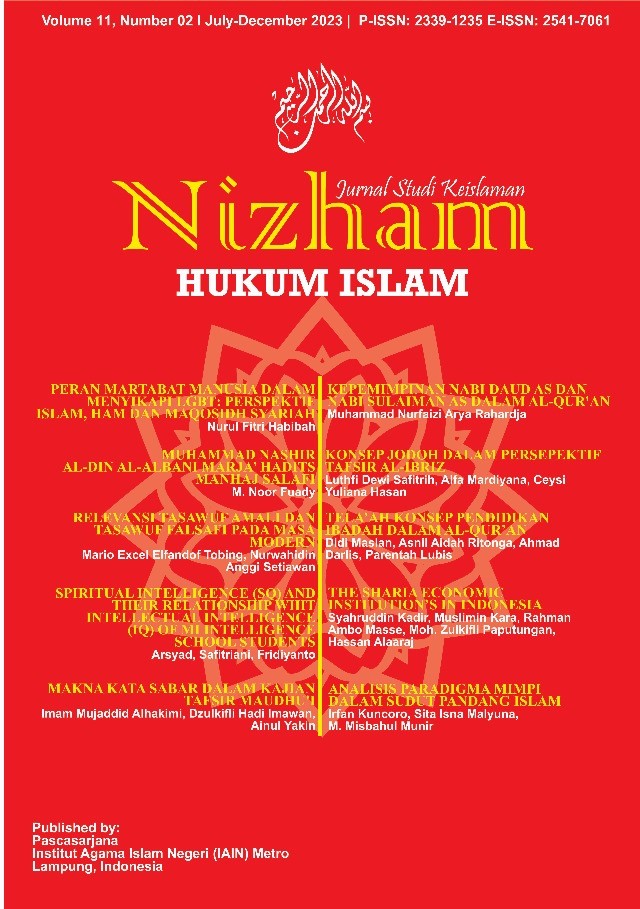The Sharia Economic Institution's History In Indonesia
DOI:
https://doi.org/10.32332/nizham.v11i02.7619Keywords:
Islamic Economics, History, Philosophy, Institutions.Abstract
The goal of this research is to learn more about the institutionalization of the Islamic economy in Indonesia, which is a fair economic system that works to preserve social and political life within bounds that don't jeopardize the general welfare. This study employs a method known as a literature review or literature study. The findings of this study show that external factors, such as the establishment of Islamic banks in other nations, trade missions, and preaching that facilitate the implementation of the Islamic economic system, have played a significant role in the history of Islamic economic thought and institutionalization in Indonesia. The internal aspect is public awareness, namely Muslim intellectuals' efforts to adopt an Islamic-based economic system among Indonesia's mostly Muslim population. With several laws controlling Islamic contracts and goods, institutionalization, and systems run by Islamic banks in Indonesia, the Islamic economy has up until now continued to grow. The growth of Islamic economic institutions, however, still falls short of Islamic financial literacy, where knowledge of Islamic economics is still quite poor.









